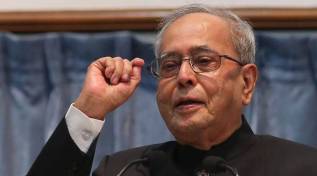 “Can I put you on the spot?”
“Can I put you on the spot?”
That was the question asked by the woman who came up to me after the International Day of Peace brunch at Pacifica Institute.
I might have been the only Christian in the room. I’m not sure about that, but of all the people who spoke and identified their tradition, most were either Jewish or Muslim. But I was the one who was there in a clergy collar, was introduced as a reverend, and had stood on the stage to offer a peace blessing after brunch.
offer a peace blessing after brunch.
Can I put you on the spot?”
“Of course,” I said, pretty much guessing at what the question would be.
“What do you think about these Christians who are supportive of Trump?”
I knew it! Immediately the anger rose up in me – not at my new friend, but at the awful predicament we Christians are in. I explained about the growing divide between us. On one side are some evangelicals who are trying with all their might to hold onto a dying theological worldview which embraces tribalism, exclusivity, individual salvation, and a hierarchical/patriarchal ordering of the world. On the other side are those who are leaning into a new paradigm of interconnectedness, interdependence, interspirituality, and inclusivity.
I also shared my theory that the reactivity we’re witnessing in both religion and politics is due to the fear engendered by this shift. In a way, I can sympathize. Theologian Hans Küng calls what we’re going through a “Macro-Paradigm-Shift,” affecting all of our institutions on a global scale. Some characteristics of the emerging paradigm are:
- It’s global. Humanity is seen as a single tribe and this one tribe is interconnected with the total cosmos.
- It’s an age of dialogue, not monologue. Instead of talking only with those like us, we meet with people of differing convictions, not as opponent, but in order to listen, share and learn from one another.
- It will be characterized by a deep commitment to environmental justice, including a shift from an exclusively anthropocentric view to one which sees humanity in interdependent relationship with all other life forms and with the Earth itself.
- It will involve a redefinition of religion. Many of the answers given in the past do not address questions being asked today. Just as Christianity moved from a Jewish way of thinking into one of Greek philosophy (which produced the ‘substance’ language of the Nicene Creed), we are now moving into a new way of reflecting on theological matters.
I get it; change is difficult. Even when I’m in full agreement with a change in my own life, I still feel discomfort as I go through it. So I get the resistance to change. I can even sympathize with it to a point – but not with the reactionary, knee-jerk attempts to hold back the flow of history.
As a Christian, it is helpful (although sometimes frustrating) to be in an interfaith setting. Seeing myself through the eyes of a Jew, Muslim, Pagan, or Atheist reveals the intrafaith spot we’re in. It’s not enough to vehemently declare, “I’m not like those Christians. We have to define ourselves by who we are.
At another interfaith gathering last week, a Jewish woman spoke up and said that she was usually more comfortable with Muslims because the issue with Jesus never comes up; with Christians, you just couldn’t be sure. Once again, I felt the desire – the urgency – to promote a different kind of Christianity than the kind that turns people off.
The divide is growing and we are on the spot. How will we contribute to peacemaking in our churches, communities, and world – as Christians of a new paradigm?
 “Need for intra-faith harmony, says ex-Prez”
“Need for intra-faith harmony, says ex-Prez”


 didn’t think much of the situation at the time. But when she realized the uproar among students, alumni, and within the larger evangelical community, she said:
didn’t think much of the situation at the time. But when she realized the uproar among students, alumni, and within the larger evangelical community, she said: